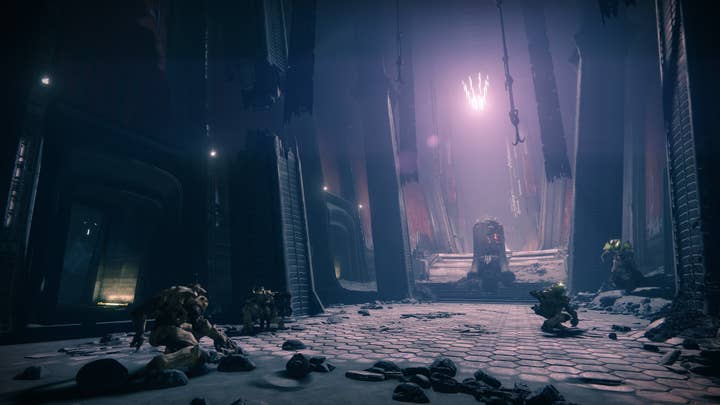"Big exclusive games win the day, and Stadia does not have any"
Industry analysts are questioning the value that Google Stadia will offer to its paying subscribers
Streaming was always likely to be a major theme of E3, and so it has proved. Microsoft announced the first public demonstration of Project xCloud at its press briefing yesterday, while Bethesda announced an SDK that will help reduce latency and generally optimise the performance of any streaming service.
One company got the ball rolling early, however: Google, which promised to reveal more details of its Stadia streaming platform this summer when it was first unveiled at GDC. Many interpreted the summer to mean E3, but instead it elected to get ahead of the crowd and show its hand the week before.
Stadia will launch first as a premium subscription service in November, Google revealed last Thursday, with a free tier following in 2020. The premium service, Stadia Pro, will offer higher fidelity streams than the free Stadia Base tier, though paying subscribers will still have to purchase the vast majority of games individually. This model wasn't quite what many were expecting -- including several industry analysts, who discussed the details with GamesIndustry.biz.
"Stadia may be considered to be a luxury that existing console and PC gamers are willing to forgo, at least for the time being"
Michael Pachter
Piers Harding-Rolls, research and analysis director for games at IHS Markit, acknowledged the logic in having both a free and a premium tier. The former, Harding-Rolls said in a report, would be invaluable, "as a user acquisition channel for those trying out demos or trailing content via promotional links across YouTube and other sites." Stadia Base will also open up monetisation opportunities through business-to-business marketing, he added.
"It is not a surprise that Google is delaying launch of this free tier until 2020," Harding Rolls said, "as it gives the company the best shot of maintaining service quality as it scales its users."
Opinions are split on whether Google's decision to launch a premium subscription service first will prove to be correct. David Cole, founder and CEO of DFC Intelligence, described a monthly subscription for a service like Google Stadia as, "a very tough sale."
"I thought they would have gone in reverse and started with a free service and then looked to charge," Cole said. "The premium is somewhat baffling."
Cole continued: "Five years ago I said Google was the biggest threat to upset the traditional game industry. Stadia and Google as a concept looked like it could have a major impact. Now it is like the end of The Wizard of Oz. This is just another of many such services we have seen over the years; nothing special, and Google does not seem to be just dipping its toe in the game market."
Lewis Ward, research director at IDC, noted the similarity between what Google is proposing with Stadia Pro, and the earliest iteration of Sony's PlayStation Now service. When PS Now first launched, Ward said, it employed a rental model, which charged users between $8 and $15 to rent a game for 90 days. The value this presented was rightly questioned, and Sony eventually shifted entirely to a subscription model that exchanged access to a catalogue of games for a single fee.
"My point is that it appears Google is going back to where PS Now started in many ways, and is likely to trend in the direction of PS Now over time from a business model perspective," Ward continued. "A subscription plan is the way to go long-term.
"Google's internal dev team needs to get a marquis exclusive out there as soon as possible, and pray that it's a system seller"
Lewis Ward
"Early on, however, partly due to game publisher constraints, it sure seems like the first attempt to start the engine is done with a hand crank, and that means individual game 'sales.' Once there's some scale there, the economics of a subscription model appear to be the best option."
Overall, though, Ward described leading with a premium model to be "confusing." Google may want to prove it can walk before it attempts to run, but doing so carries, "risk of generating low demand out of the gate."
There is also a question over who, exactly, Google expects to tempt with its current approach to the launch of Stadia. As Wedbush's Michael Pachter pointed out in his note to the press, the service may be cheaper than a console or a gaming PC, but there are still upfront costs separate to the monthly subscription payment. The Founder's Edition, which includes a Stadia controller and a Chromecast Ultra, costs $129.99, and a controller purchased separately will be $69.
"As a result," Pachter added, "Stadia may be considered to be a luxury that existing console and PC gamers are willing to forgo, at least for the time being."
Given that Stadia is being pitched as a service that lets users play games they already own -- albeit with the convenience of doing so with greater flexibility -- it's fair to assume that "existing console and PC gamers" are very much the early adopters that Google is targeting at this stage. With that in mind, the number of third-party publishers that are already supporting the platform is a definite positive.
However, Pachter cautioned that while, "early third-party support is strong relative to some other offerings, it is not comprehensive by any means, and early support does not necessarily lead to long-term support."

One proven strategy for winning the hearts and minds of gamers is through content -- but here again, Stadia seemed to come up short. If the appeal of what Stadia offers is not deemed worth the cost of the necessary equipment and the subscription fee, then value can be added with access to a catalogue of games, or by securing exclusive titles that can't be found anywhere else.
Stadia will have free games, though Destiny 2 was the only one that Google revealed, and it later emerged that Bungie will release a free-to-play version in September anyway. The game that received the most attention was Larian's Baldur's Gate III, but CEO Swen Vincke quickly established that it would not be exclusive to any platform, Stadia included.
"The initial lineup was all over the map, and simply not that compelling"
David Cole
"Big exclusive games win the day, and Stadia does not have any," DFC Intelligence's David Cole said. "The initial lineup was all over the map, and simply not that compelling."
IHS Markit's Harding-Rolls pointed out that the only new games likely to be included in a subscription catalogue are first-party titles. Google has established a division -- with former Ubisoft exec Jade Raymond at the helm -- that has the creation of first-party content as one of its main goals, but that push is still in its nascent phase. At this point, Stadia simply cannot offer third-party publishers a clear incentive to bypass existing storefronts.
"I believe major exclusives will be key to driving consumer awareness of and desire to adopt cloud gaming services," Harding-Rolls said. "As such, with the selection of content on offer, Google has not yet demonstrated that it will be better placed to engage gamers than the established console and PC storefronts, and that is likely to somewhat hinder its ability to attract subscribers."
IDC's Lewis Ward took an even stronger position, noting that Google would have to effectively fund the entire production of a third-party game to secure the exclusive content that most believe Stadia will need.
"No third party publisher in their right mind would bet on a Stadia exclusive making money, unless Google practically offsets all the development cost," he said. "Same difference as first party, except Google doesn't wind up with the IP or developer talent.
"Google's internal dev team needs to get a marquis exclusive out there as soon as possible, and pray that it's a system seller."









